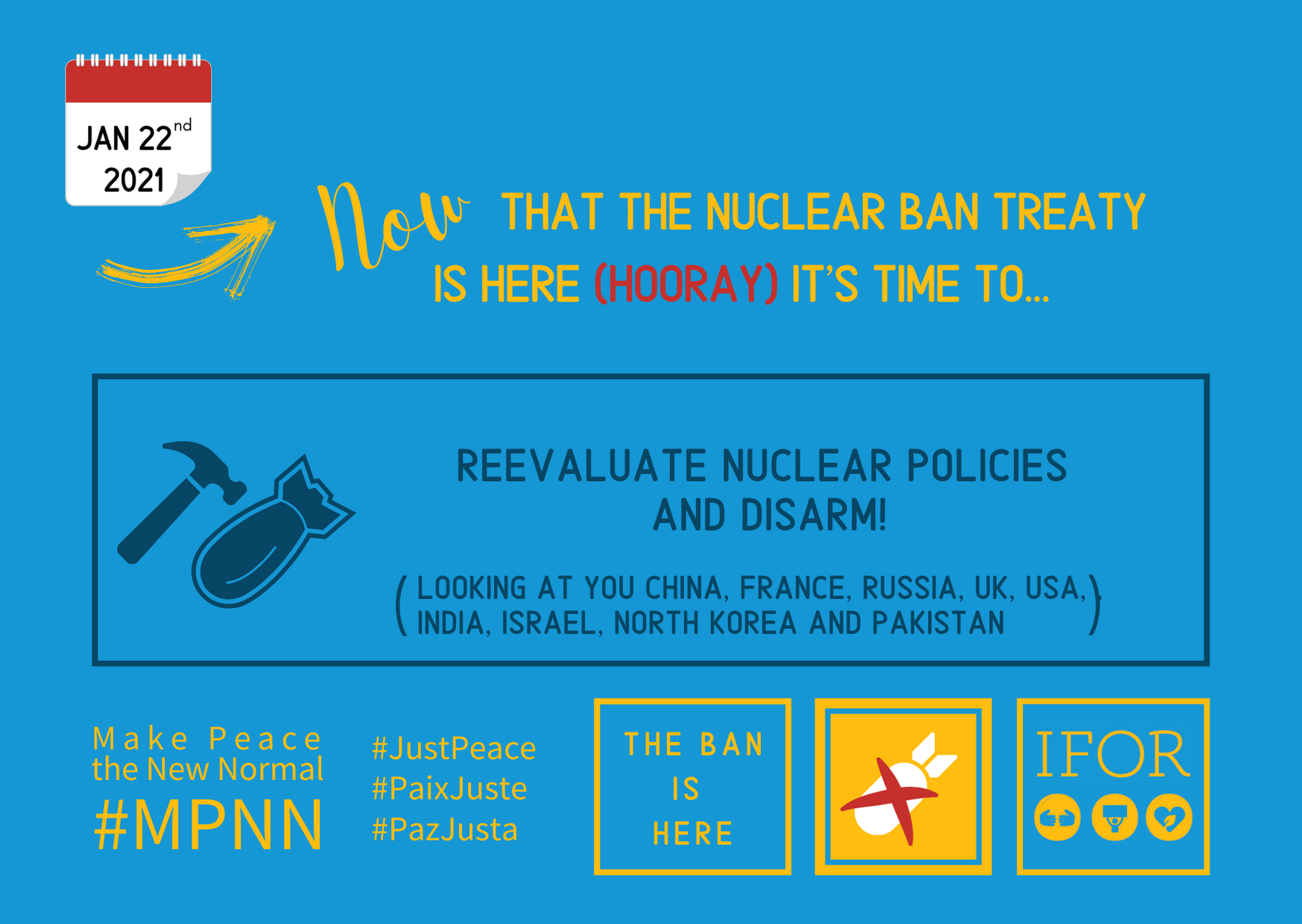Stop Your Money Going into Nuclear Weapons
The first thing we encourage you to do is stop the money going into nuclear weapons. We currently live in a world where nearly half the world’s population lives on less than $5 a day. Where over 200 million school age children still cannot access education. It is obscene that between 2017 and 2019 over 700 billion dollars were pumped into research, development, and management of nuclear weapons.
Because of global money flows, we are all able to take a stand and challenge the banks and firms to stop investing our money in nuclear bomb development.
‘Don’t Bank on the Bomb’ is a global campaign that is taking action to stop the money going into nuclear weapon development. Whether you have a bank account or are part of a network that has a bank account, this is your chance to challenge the people who hold your money and ensure it is used for peace. ‘Don’t Bank on the Bomb’ have information to help you ask the right questions - find out more: https://www.dontbankonthebomb.com/take-action-for-divestment/
End the Political Support
The splitting of the atom was a scientific discovery. The continued development and investment in nuclear weapons are a political decision. Political support around the globe for these weapons is being challenged by the treaty. It dares to create a coalition of nations that want to invest their political energy ridding the world of these weapons and setting us all on a path to peace.
The existing Nuclear Non-Proliferation Treaty limits the expansion of nuclear weapons around the world. The Ban Treaty takes the world further to their abolition and moves nuclear weapons into recognition as illegal. We hope the ban treaty further encourages existing nuclear states to follow the path of South Africa and move from holding nuclear weapons to giving them up.
The International Campaigns for the Abolition Nuclear Weapons (ICAN) has worked for many years to build political support for the abolition of nuclear weapons. It is because of their work the treaty is coming into force. But their work is not ending yet.
· If your country is one of the 80+ pioneers who have already signed and ratified the treaty, please write to your government, and congratulate them today. https://www.icanw.org/signature_and_ratification_status
· If your country has signed but not yet ratified, then please write to your government encouraging them to complete the promise of peace they started: https://www.icanw.org/signature_and_ratification_status
· If your country has not yet signed the treaty, please write to them, and ask them to sign and ratify the treaty. https://jointheban.icanw.org/
· If your country is a recognized nuclear power state (France, Russia, United Kingdom, and the United States) or known to hold nuclear weapons (Israel, India, Pakistan, China, and North Korea) you may want to start a local campaign. A key part of the Global Campaign is the creation of a network of cities that support a nuclear free world. Cities endorsing the campaign politically delegitimize these weapons: https://cities.icanw.org/
Clean up the Planet for Peace
The 2020s will be the decade the world faces up to its impact on the environment. A part of this will be recognizing the significant impact that nuclear testing, detonation, and destruction have had on the planet.
The vast supply chain needed to mine and enrich uranium, then to safely dispose of the nuclear waste after use, means nuclear weapons bring their own unique and difficult set of environmental challenges.
One major injustice is that many of the regions now affected by this -- either from nuclear testing or the enriching of uranium -- are not nations that possess the bomb. From Pacific islands harvesting food, to seabed’s on which nuclear bombs were tested, to nuclear waste shipped to various countries in the continent of Africa, the whole world is caught up in the impact of weapons that only a few nations have held.


